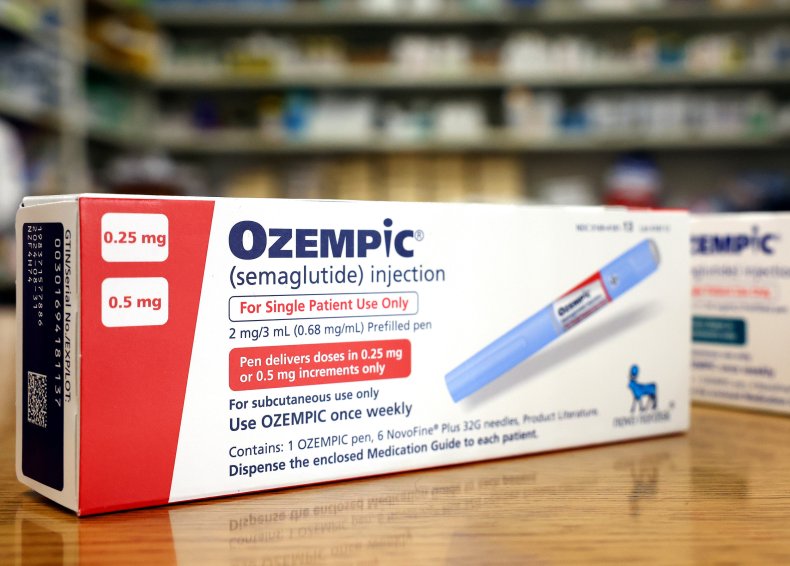As weight loss drugs like Ozempic face possible connection to stomach paralysis, retailers are hoping the news will lead consumers to an uptick in grocery spending.
Walmart’s chief executive warned of the change in food shopping habits for those taking Ozempic earlier this month. As inflation remains high and Americans continue to reel in their spending, the appetite suppressants have caused some retail leaders to become even more concerned over their bottom line.
Walmart has already seen “a slight pullback” from customers on weight loss drugs, Walmart president Jeff Furner said.
Nutrition experts say the drop in sales from these consumers is not just due to the appetite-suppressing effects of the drugs. With out-of-pocket costs for the drugs estimated at $500 a month, it’s easy to see why customers would prefer to limit the rest of their discretionary spending.
Mario Tama/Getty Images
“Some people, it’s not fully covered by insurance,” dietitian Lisa Moskovitz told Yahoo News. “They might be spending a lot of money out of pocket. They’re going through the trouble of taking out a needle and injecting them once a week. They’re committed.”
The ramifications of the drugs go beyond consumer behavior just at grocery stores – it could also lead to less foot traffic and lower average checks at restaurants as well.
“They’re in a let me eat as little as possible and take advantage of this medication that is suppressing my appetite mentality, and there’s going to potentially be less consumer action at restaurants,” Moskovitz said.
Morgan Stanley analysts predict that over the next 10 years, 7 percent of the U.S. population, or roughly 24 million people, could be on drugs like Ozempic to manage weight.
This likely will see those reduce their diets by 20 percent fewer calories.
Junk food as a whole could see its market value plummet, with analysts theorizing that soda, baked goods and salty snack consumption could wane by 3 percent.
Weight Loss Drugs Linked to Health Risks
There could be one beacon of hope for retailers seeing food purchases go down, however. As more research is invested in weight loss drugs, some scientists have sounded the alarms on several worrying potential side effects.
A new study released this week indicated Wegovy and Ozempic may be associated with increased risk of three severe stomach conditions in non-diabetic patients.
University of British Columbia researchers investigated the drugs after they were linked to stomach paralysis and suicidal ideation by those taking them.
Stomach paralysis occurs when the movement of food completely stops from between the stomach and intestine, and persistent vomiting is often experienced.
There’s also an increased risk for bowel obstruction, which happens when food is blocked from the small or large intestine as well as pancreatitis.
The study was published after analyzing the health insurance claim records of around 16 million U.S. patients.
“We’re all big proponents for informed patient consent,” study author Mohit Sodhi told MSN. “If someone has decided they would like to take a GLP-1 for weight loss, we encourage them to have a conversation with their provider about how it may help them achieve their goals. But they should also be made aware of the potential drawbacks of taking this medication.”
Around 15 percent of Americans have personally used Ozempic for weight loss, but nearly half, 47 percent, know someone who has, a 2023 Tebra Survey found.




